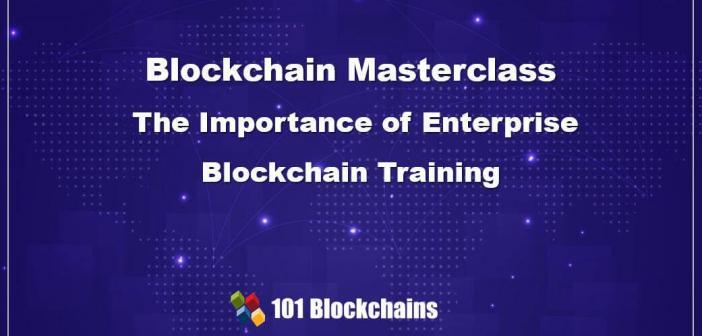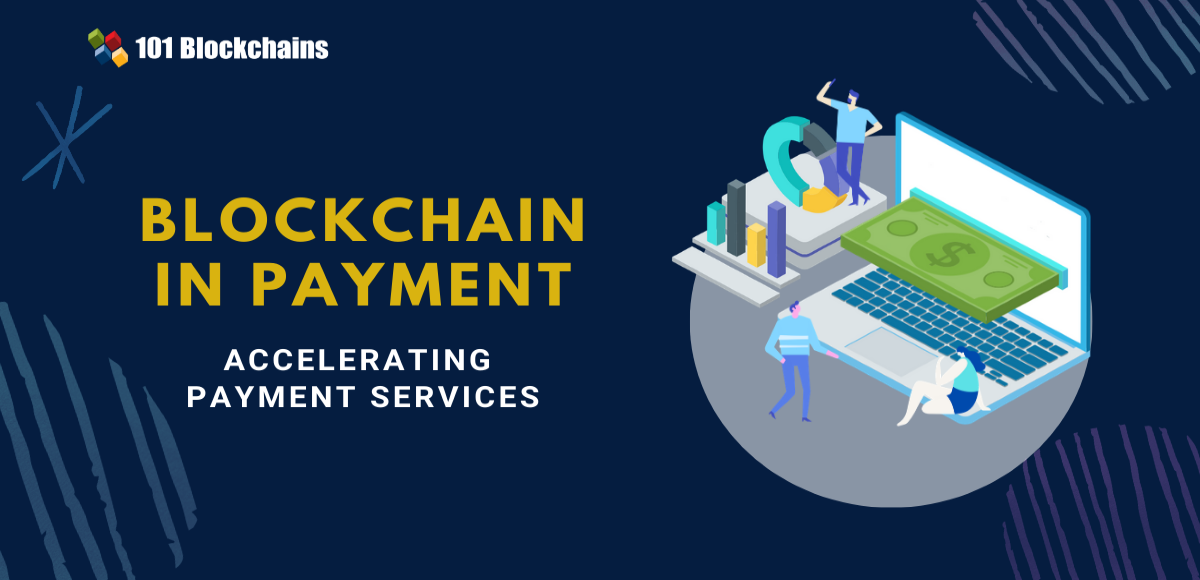The distributed ledger technology (DLT), also known as blockchain, is the marvel of this decade. Having started off as the technology underlying bitcoin and other cryptocurrencies, DLT is now ripping through almost all industries. Therefore, as DLT continues to disrupt industries, is becoming necessary for enterprises to get a hold of the knowledge. This is what informs this blockchain masterclass.
Blockchain as a digital transformation trigger
The business world relies on trust between the supplier and the consumer. It is this trust that binds the market together and with the help of various rules and regulations. Further, consumers and their expectations, to quite a large extent, determine the major market trends. However, it is not uncommon to see that the global market place is rife with breach of trust, exorbitant fees and chronic delays in service delivery. Unfortunately, all of these work against the customer, who should be the determinant of how business happens.
-
Blockchain scraps financial intermediaries and secures the IoT ecosystem
In the financial sector, financial intermediaries like stock exchanges and payment networks are sources of consumer injustice. Notably, 45% of these intermediaries suffer crime and fraud, which transfers to the consumer as a loss. Fortunately, blockchain technology promises to expedite business operations, cut costs and enhance trust in the marketplace. For instance, blockchain technology completely does away with intermediaries in the financial sector. This is to say that peers are able to trust one another without the need for a central party to enforce the trust.
Further, there is an ongoing digital transformation that involves the Internet of Things (IoT). In particular, this is a revolution that began with the coming of Cloud Technology. Interestingly, the IoT technology enables people to utilize smart devices to accomplish various tasks. However, such a ubiquitous presence on the internet poses the danger of losing data to hackers. Therefore, it is clear that the cloud is insufficient when it comes to the security of users.
Luckily, blockchain presents an ingenious alternative that assures users of their internet security. One of the underlying properties of blockchain is that the ecosystem is hack-proof. As such, developers are integrating blockchain technology into the IoT to ensure that appliances are secure. To get the drift, there over 6.4 billion IoT devices worldwide today and over 25 million get connected daily. Getting blockchain to secure all these gadgets is quite an enormous responsibility on the part of the technology. Interestingly, this is like blockchain is the next big thing after cloud technology.
-
Smart contracts
Perhaps another property of blockchain that will barrel down the old business structure is smart contracts. The smart contract feature is so revolutionary such that entities who have no idea about each other’s identity can enter deals without fear of fraud. The smart contracts enforce agreements in a way all the existing mechanisms have failed.
Notably, the feature is triggering a revolution in the banking sector and as a result, financial institutions are scrambling to adopt the tech. this shows just how important this technology is. Further, the institutions are aware of the implications of the tech such that they risk extinction without embracing it.
The smart contracts and other blockchain features are leading a transformation into the digital marketplace with decentralized structures. Interestingly, the kind of digital transformation that will arise from this technology is capable of shifts in the political and cultural spheres. This is on the basis of the significance of contracts and the role they play in streamlining interactions in the spheres.
Key blockchain statistics
The DLT is finding use cases all across industries globally. In particular, businesses are able to save a lot in terms of costs of handling core operations. Similarly, the technology affords businesses efficiencies that were unheard of in the past. Interestingly, studies indicate that businesses so far have realized up to $2.5 billion in value as a result of adopting blockchain. Further, the businesses could realize up to $2 trillion in blockchain business value by 2030 if they continue to adopt the technology.
The cryptocurrency market might not be notable to various CIOs that determine the technological direction of a company. However, it is critical to note that blockchain broke onto the global stage on the back of bitcoin and other cryptocurrencies. Notably, the cryptocurrency market was worth about $16 billion at the beginning of 2017. Interestingly, the market closed the year at over $600 billion. This magical transformation is one of the reasons blockchain is popular today.
-
The blockchain space is expanding rapidly
According to Netscribes, the blockchain space is expanding quite rapidly. Notably, the firm estimated that space will expand 42.8% annually, with 2018 being the pivotal year. As per the firm, this expansion is likely to continue until 2022. Interestingly, this assertion concurs with a report by the World Trade Organization (WTO) which predicts blockchain to revolutionize trade.
According to the report, blockchain will facilitate up to $3 trillion of value addition in global trade by 2030. Notably, the technology has the capacity to increase the rate of automation in the manufacturing industry hence boosting efficiency. The technology will further enable businesses to cut costs of production and service delivery. In addition, the technology is leading the campaign by new technologies like AI and Machine Learning to remove barriers in global trade. From blockchain alone, WTO expects the removal of barriers to lead to new trade opportunities amounting to $1 trillion.
-
More money going into expenditure on blockchain solutions
Furthermore, the International Data Corporation (IDC) predicted that worldwide spending on blockchain solutions will increase rapidly from 2018 onward. Notably, the expenditure is likely to hit $11.7 billion by 2022. In the period of the forecast (2017-2022), IDC determined that the compound annual growth rate (CAGR) of the expenditure on blockchain solutions is likely to fall at 73.2%. For 2018 alone, the expenditure would hypothetically amount to $1.5 billion. Interestingly, this is double the amount that entities spent on blockchain solutions in 2017.
In the same estimates, IDC predicted the U.S. to lead in investing in the technology. According to the corporation, despite the global enthusiasm concerning blockchain, the U.S. is likely to deliver over 36% of overall spending. Nevertheless, there is evidence of global adoption as governments are also jumping on board.
The importance of blockchain executives’ education
This blockchain masterclass focuses on the people that have actual power to determine how an organization interacts with emerging technologies. As earlier discussed, the business space is already undergoing fundamental shifts due to blockchain technology. Further, it is clear that early adopters stand to benefit greatly by staying ahead of the competition.
Interestingly, blockchain is having an impact on almost all sections of an organization. Therefore, it is imperative that entities adopt a cross-organizational approach toward this technology. Notably, the blockchain corporate masterclass incorporates key aspects of blockchain as well as insights and research. In particular, attendees will learn about the different blockchain networks and how they operate.
-
Why executives should earn an enterprise blockchain certificate
An enterprise blockchain course helps corporate executives to gain critical insights on the various use cases of blockchain technology. Notably, the insights will facilitate the formulation of appropriate business models that incorporate the technology. For instance, enterprise executives will learn how to leverage blockchain to enhance trust in their supply chain as well as combat the problem of counterfeiting. Further, earning an enterprise blockchain certificate will enable executives to fine-tune their services so that they can best serve their customers.
Another major objective of an enterprise blockchain certificate is for executives to participate in workshops that teach design and strategic thinking in regard to blockchain technology. It is no secret that every emerging technology has a wealth of opportunity if approached strategically. Interestingly, CEOs, CTOs, CIOs and other executives earn their pay by offering strategy and designing approaches that best integrate new technologies.
However, it is clear that there is little out there concerning the breadth of potential that blockchain carries. In particular, blockchain is popular in cryptocurrency circles more due to the dramatic rise and fall of the industry. What executives are realizing is that the technology has a lot more to offer outside crypto than initially thought. This is the more reason for executives to pursue blockchain corporate training to align their knowledge with the emerging technology.
-
Enterprise blockchain masterclass is also necessary public entities
Interestingly, blockchain is not just a preserve of the private sector. Notably, data stored on a blockchain platform is immutable and can last for ages. As such, technology is becoming critical in identity management for government agencies. Further, various entities are investigating the suitability of blockchain as a means for voting. Given the level of transparency and data integrity inherent in a blockchain network, it could be possible to conduct free and fair elections, something that is quite elusive in today’s democracies.
Following the application in identity management and facilitating free and fair elections, it is evident that blockchain is also important to governments. This means that government agencies can use the platform to efficiently collect taxes, manage identities and do so much more. As such, governmental organizations should ensure that their employees undergo enterprise blockchain masterclass.
Also, trade organizations need to understand the technology. Particularly, once there is a fundamental shift in the global trade landscape, it will affect all the stakeholders. Attending a blockchain masterclass will ensure that people stay ahead of the shifts. Further, knowledge gained from an enterprise blockchain course will enable learners to appreciate the potentials of blockchain as well as identifying its threats.
Verticals of blockchain transformation
There are numerous verticals that are emerging and related to blockchain technology. Interestingly, the technology is gradually moving away from the cryptocurrency industry which broke it onto the global stage. Taking the blockchain masterclass will enhance executives’ knowledge concerning these verticals. Further, CIOs, CTOs and even Strategy Directors and VPs will be in a better position to understand how to leverage the technology.
-
Business transportation
Traditionally, business transportation is one of the principal sources of losses for businesses. The existing means for tracking and tracing business trips and paths do not measure up to the challenge. In particular, bad employees successfully steal from companies without the knowledge of company management.
Blockchain technology enables the management to monitor the trips and paths to last detail. Once a business integrates blockchain solutions that track and trace the supply chain, all data related to the supply chain is readily available and easily accessible.
There are other verticals like retail, healthcare, oil & gas, government services, smart cities, travelling, education, and so on where blockchain is super critical. It is super critical for business executives to get in-depth knowledge concerning the various verticals. Notably, undergoing blockchain corporate training is an important step towards getting this knowledge.
Enterprise blockchain platforms
Given the corporate/enterprise interest in the promise of enterprise blockchain, there are few platforms that sprung up to plug the demand. Some of the platforms include Corda, Hyperledger Fabric, Ethereum, Stellar and Tezos. Although they seem to offer similar services, it is important to acknowledge that they differ on basic, yet critical aspects.
Notably, attending the blockchain masterclass will enable executives to differentiate the platforms on the basis of technical properties like security, privacy, consensus, transaction performance, smart contracts and transaction finality.
-
Strategic criteria for appropriate enterprise blockchain platforms
Further, those who make it to the enterprise blockchain certificate will get to appreciate the strategic side of enterprise blockchain. In the enterprise blockchain masterclass, attendees will get to learn about the strategic criteria that help to choose the most suitable enterprise blockchain platform. Notably, learners will understand that a platform must have enterprise use in mind as evidenced by industry collaboration and core strategy.
Also, a good platform should incorporate reliable developer tools and must integrate well with other enterprise systems. In addition, the platform should offer scalable and competent third party services that are of enterprise-grade. Lastly, the perfect enterprise blockchain platform must show efforts to attain certification to standards as well as compliance with regulations in various industries.
Unfortunately, the criteria for choosing the best platform is at the moment fuzzy. Luckily, this blockchain masterclass will take attendees through critical steps as outlined above. Notably, learners who advance to the enterprise blockchain certificate will get the capability to choose a platform that can go beyond the pilot stage. This is an acknowledgement of the fact that only platforms that attain real adoption will offer users the all-important competitive advantage.
Why it is important to dedicate one or few full days for in-person training
The blockchain space is just maturing and that it lacks established standards to guide adoption. Further, there is so much in terms of new terminologies and business logic which might prove problematic to anyone without a clear idea of what they are. In-person blockchain corporate training plugs this gap and establishes the most robust foundation for the learner. In a few full days, learners will master terms and idiosyncratic processes that define blockchain technology.
Additionally, it would take too long time to self-teach blockchain. Like earlier stated, the field lacks established standards which also means that information is scattered. One is likely to get lost in the labyrinth of unstandardized information scattered all across the internet. Eventually, one might get too misinformed as to discredit the whole blockchain concept altogether. An in-person blockchain masterclass brings all the information in one place and imparts it to the learner in the most appropriate manner.
Further, in-person training groups the scattered information into palatable knowledge blocks. Such compartmentalization of the data makes it easier for learners to grasp the core concepts of the blockchain masterclass. This also fills in the unavailability of an enterprise blockchain course that is up to date and relevant.
Personal career
This blockchain masterclass does not intend to only give a snippet of blockchain technology. Rather, it intends to impart comprehensive information such that learners can earn an enterprise blockchain certificate. As such, one can as well create a personal career out of the knowledge imparted.
So, book our blockchain masterclass now and learn from one of the very bests in the industry.
Let’s connect and find out how we can help you drive new value to your organization



![Future of Blockchain: Predictions for 2022 [UPDATED] future of blockchain predictions](https://101blockchains.com/wp-content/uploads/2020/12/future-of-blockchain-predictions.png)
